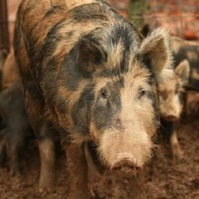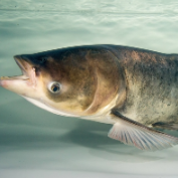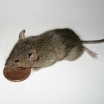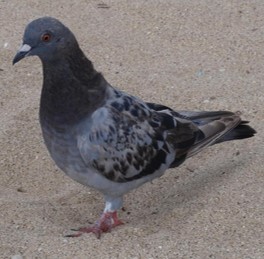Feral hogs, feral swine, wild pigs, wild boars - they are all the same, Sus scrofa. They wallow in and pollute our streams and compete directly with wildlife for food.
The damage they cause to our fields and forests is astounding. (Photo by Clint Turnage,
USDA-APHIS, Arkansas)
Explore resources on how to get rid of feral hogs
Norway rats, black rats, and house mice contaminate human and animal food with their
hair, urine, and droppings. They also cause an inestimable amount of damage to structures,
particularly wall and attic insulation, electrical wiring, and plumbing. (Photo by
Ed Freytag, bugwood.org)
Explore how to get rid of rats and mice
Large flocks of non-native birds such as European starlings, English sparrows, and
pigeons can create problems. These birds can consume large amounts of agriculture
crops or leave bird droppings which present a health hazard around homes, businesses,
and hospitals. Arkansas Game and Fish Commission allows taking some non-native bird species when causing property damage. It is illegal
to poison birds and other wildlife in Arkansas. Always check with a wildlife officer
first before taking lethal actions. (Photo by Joseph LaForest, University of Georgia,
Bugwood.org)
Find DYI solutions for non-native birds



